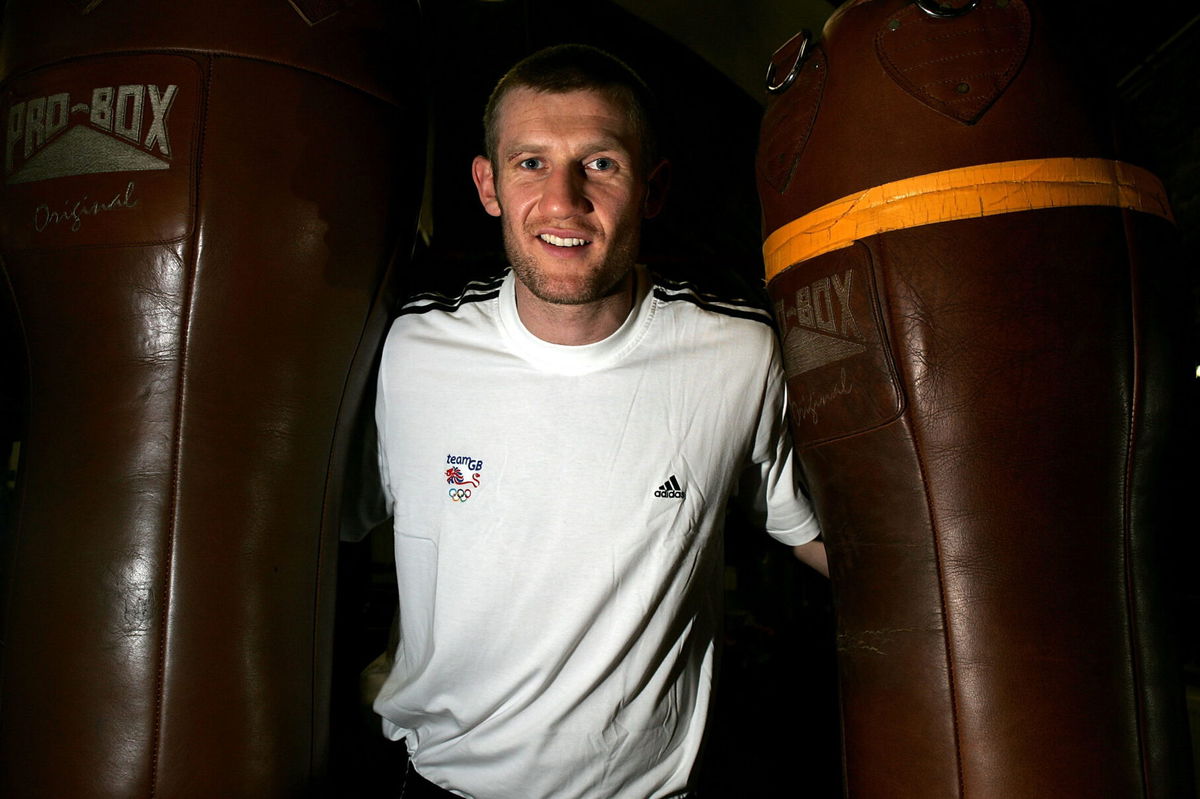
Getty
LONDON – JUNE 25: Tony Jeffries of Great Britain poses for the camera after he is announced as a member of the TEAM GB Boxing squad during the TEAM GB Boxing Announcement for Beijing 2008 at The Fitz Roy Lodge on June 25, 2008 in London, England. (Photo by Christopher Lee/Getty Images)

Getty
LONDON – JUNE 25: Tony Jeffries of Great Britain poses for the camera after he is announced as a member of the TEAM GB Boxing squad during the TEAM GB Boxing Announcement for Beijing 2008 at The Fitz Roy Lodge on June 25, 2008 in London, England. (Photo by Christopher Lee/Getty Images)
Those who follow boxing, especially the amateurs, might have encountered a noticeable anomaly since the 2012 London Olympics. This edition of the games might as well be remembered for a string of outstanding boxers who, besides winning the medals, went on to chart out spectacular professional journeys in the future. But they all had one thing in common, the mandatory head gear as per stipulations laid down by Association Internationale de Boxe Amateur (AIBA).
Watch What’s Trending Now!
But something happened, and boxers, especially males, stopped wearing headgear during the subsequent Olympics in Rio De Janeiro (2016) and Tokyo (2020/2021). As it turned out, in 2013, AIBA, based data received from new research, abolished the mandatory requirement for all male boxers. According to the study, fighters wearing headgear had a higher chance of suffering brain injury than those who opted out.
But what do the experts think? Do they agree with AIBA’s decision? To understand the merits and demerits of putting on headgear, Light Heavyweight bronze medalist at the Beijing Olympics, Tony Jeffries, shared his expert viewpoint early today. After an outstanding amateur journey that saw him win, besides the Olympic medal, the National titles nine times, and an array of medals at the European championships, he turned to professional boxing in 2009.
ADVERTISEMENT
Tony Jeffries has some answers to the headgear question
Active on social media, Jeffries makes it a point to highlight and shares concerning issues with his followers. So on the headgear issue, he responded to a question raised by a user Kevin Pack (@Kpack84). The latter asked, “What do you think about them taking headgear out of the Olympics?”
What do you think about them taking headgear out of the Olympics?
— kevin pack (@Kpack84) April 30, 2023
ADVERTISEMENT
Tony Jeffries replied, “I’m not a fan… I think they should [have] been kept in. Here’s why. Olympic boxing is the biggest stage in the world for non-boxing people (parents) to see boxing. W/O head gear, theirs like 99% more cuts in amateur boxing. Now… if I’m a parent watching boxing and seeing kids having blood run down their faces, with a big gash above their eye in a fight. Would I put my kid in the sport? Absolutely not.“
Top Stories
Floyd Mayweather Faces Threat of Losing Post-Boxing Empire as 8-Figure Debts Mount: Report
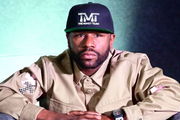
Anthony Joshua Discharged From Hospital as Police Arrest Driver Over Fatal Car Crash in Nigeria
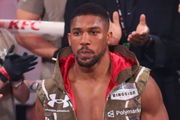
“Rest in Peace”: Condolences Pour In as Legendary Coach Freddie Roach Mourns Personal Loss

Jake Paul Faces Another Setback as WBA Drops Him After Anthony Joshua Knockout Loss
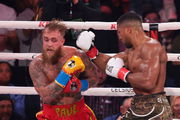
Floyd Mayweather Breaks Silence as $402M Real Estate Deal Goes Allegedly Wrong
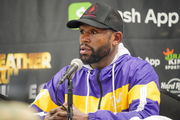
I’m not a fan… I think they should of been kept in.
Here’s why.
Olympic boxing is the biggest stage in the world for non-boxing people (parents) to see boxing.
W/O head gear, theirs like 99% more cuts in amateur boxing.
Now… if I’m a parent watching boxing, and seeing… https://t.co/GuLHoCNMKC
— Tony Jeffries OLY (@Tony_Jeffries) April 30, 2023
ADVERTISEMENT
So according to Tony Jeffries, the absence of headgear might discourage even picking up boxing as a sport. Then explaining a nuanced understanding of the requirement, he said that many folks also miss out on the point that headgear protects the hands. Without the soft padding on the head, the hands would hit a hardened skull.
He, however, agreed with the point highlighted by the research to review a headgear’s protective impact. For example, when a boxer dons an accouterment to protect his head, the overall size of the head invariably increases. Thereby, it becomes an appealing and easy target for the opponent to go after. But then he asked, “Then why not make thinner head guards with the same protection?” According to Jeffries, his two justifications validate the merits of the continued use of headgear.
ADVERTISEMENT
History of the headgear
The headgear was introduced in the Olympics in 1984 after two tragic incidents rocked the boxing world. According to the study conducted to evaluate its effectiveness, headgear gave boxers false comfort. Thus it resulted in either of the belligerents undertaking unnecessary risks. Also, it restricted a boxer’s vision, making it difficult for him to parry or dodge a punch.
For assessing potential safety advantages of not wearing headgear, a study of eleven thousand amateur boxers mentioned a 43% decrease in concussions from 2013 to 2015.
ADVERTISEMENT
Debuting on 2009, Jeffries retired in 2012. He won all but one out of the ten matches he participated in. Sadly, persistent hand injuries forced the early retirement of the outstanding boxer. Now settled with his family in California, he is one of boxing’s foremost educator and trainer, besides running a boxing gym in Santa Monica. Not to forget, Jeffries is massively popular on the internet, with nearly 2 million subscribing to his YouTube channel.
Watch This Story: Boxing News Roundup (April 14, 2023): Mike Tyson and Wiz Khalifa on their ‘fun’ deal, Oscar De La Hoya’s predicts Canelo Alvarez vs. David Benavidez, and more
What is your take on Tony Jeffries’ explanation? Do you agree or disagree? Do share your views and opinions with us in the comments below.
ADVERTISEMENT
ADVERTISEMENT
ADVERTISEMENT
ADVERTISEMENT

